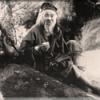Sign in to follow this
Followers
0

"true" Daoism, teacher or lineage - is it true?
By
daoseeker, in General Discussion

By
daoseeker, in General Discussion